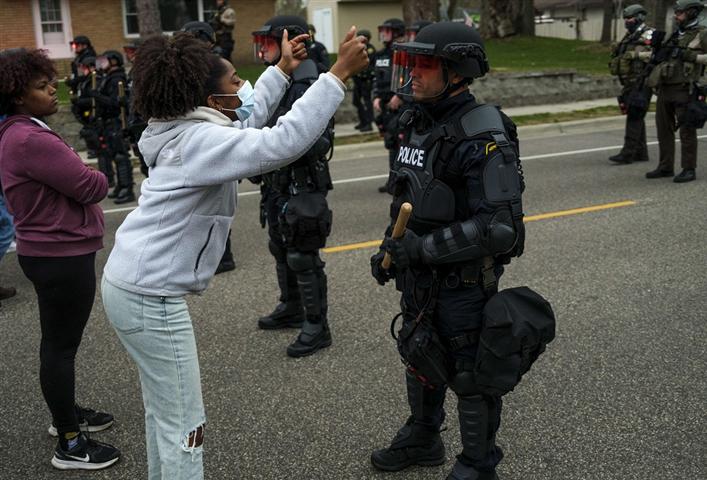The Monmouth University poll on Wednesday found 61% of Americans believe racial and ethnic discrimination is a “big problem,” while 52% say race relations are a major reason behind the current political divide.
Among Black people, 76% say discrimination is a big problem, compared to only 52% of non-Hispanic whites.
Among whites, these numbers vary dramatically based on political party identification.
Though 72% of white Democrats say race is a major issue for divisions, only 51% of white Republicans agree.
The numbers followed a spike in 2020 — after the murder of George Floyd by a white Minneapolis police officer — when 76% of Americans said racial discrimination was a big problem.
Political divisions in America have been growing for some time, and the 2016 and 2020 elections highlighted the divisions.
Still, Monmouth’s poll showed that 52% of Americans remain somewhat optimistic about the future of race relations, though people of color are less likely than whites to express this hope.
58% of people of color want to see racial diversity and inclusion given more attention, including in schools.
Curriculum around race and racism has become a particularly hot topic in the last few years as some politicians seek to limit how these topics can be taught in schools.
At least 26 states have banned books for pushing what conservatives argue is critical race theory, a legal framework taught in colleges that explores how racism is embedded in most American institutions.
Meanwhile, Florida Gov. Ron DeSantis — who announced a 20242 White House bid last month — recently signed legislation prohibiting schools from spending public funding on diversity, equity and inclusion programs, or what his office called “discriminatory initiatives.”
Almost half of white respondents in the Monmouth survey said racial diversity and inclusion needs to be given less attention, with 50% supportive of limiting how racial inequity is taught in schools.
pll/ro/adr










